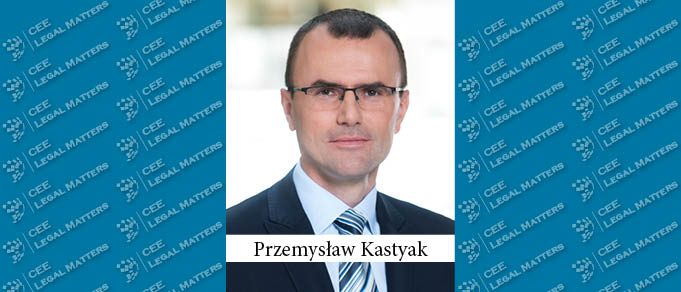Major transactions are taking place in the energy sector in Poland and the country is preparing to address gas shortages for the upcoming winter, while dealing with soaring inflation and high-interest rates, according to Penteris Partner Przemyslaw Kastyak.
"The War in Ukraine remains the main topic in Poland," Kastyak begins. "It is almost unbelievable to see how our society has grown – we have two to three million refugees at the moment in the country, or close to 10% of Poland’s population, by some estimates." This, of course, has become a political topic and influenced the economy, he says. "Consumption went up in recent months and the residential real estate market was also heavily impacted – in March, it was almost impossible to rent an apartment in Warsaw," he notes. "Additionally, many corporations with offices in Ukraine now have moved to Polish cities, sometimes also relocating their workers as well."
Other than welcoming refugees, Kastyak says that Poland also supports Ukraine in many other aspects. "We are the third biggest military aid provider after the US and the UK. As an example, we provided approximately 350 tanks to Ukraine, which is an impressive number," he notes.
On the economy, Kastyak says "the very recent announcement of the Polish statistics office indicates that economic growth in the second quarter was slightly lower than expected. In terms of inflation, in July we faced the highest rate – 15.6% – since 1997." According to him, these issues stir polarization in public opinion, with the opposition pointing also to local factors and populist policies potentially leading to this outcome. "The economic factors, on the other hand, are affecting interest rates on mortgages, financing, and loans – they have been increasing constantly since late 2021," he notes. "All of this had a big impact on mortgage availability and the ability to buy apartments."
The Polish Deal 2.0 is among the widely discussed topics, Kastyak reports. "The initial Polish tax reform was the subject of criticism since it proved to be defective and did not serve its intended purpose," he says. "Now we have a second deal introduced in July, with certain provisions having a retroactive effect to cure major defects."
On a brighter note, Kastyak says that the country is relatively optimistic when it comes to gas sources after deliveries from Russia were cut. "We have a port to receive liquified natural gas," he says, noting that major suppliers include Qatar and the US. "In September, the Baltic Pipe providing gas from Norway will also start operating."
Kastyak notes that the major transactions taking place in the energy sector are set to continue. "PKN Orlen merged with Grupa Lotos, and Hungary’s Mol, Saudi Aramco, and local Unimot were involved in the EC-ordered remedy transactions. Now PKN is also set to take over PGNIG – the Polish gas operator – with the government looking to establish one large, national, integrated energy company." More developments in energy are expected, he reports: "the government aims to remove the restrictions on the development of wind farms in Poland, by decreasing the minimum distance of turbines from residential buildings from 1,5 kilometers to 500 meters."















